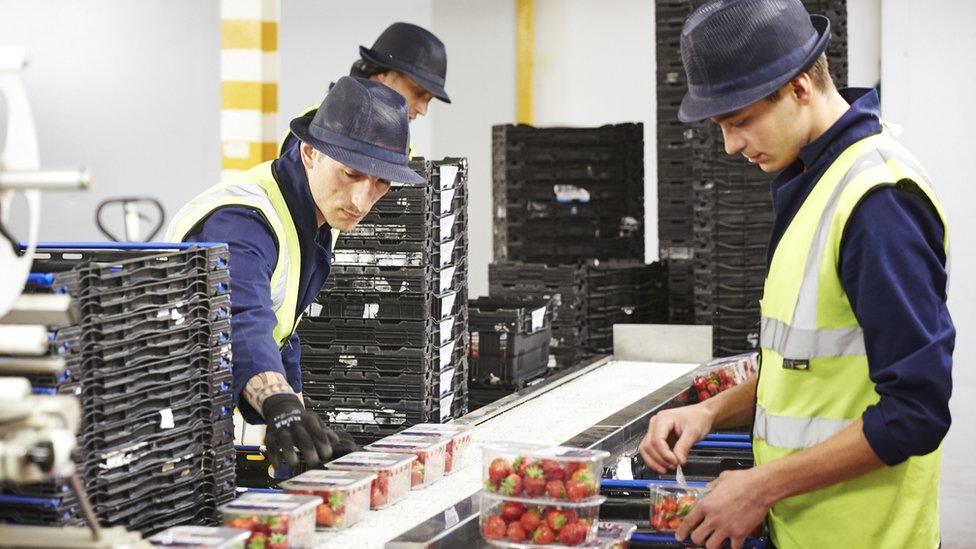Pingdemic: 'We got close to complete shutdown'
- Published
- comments
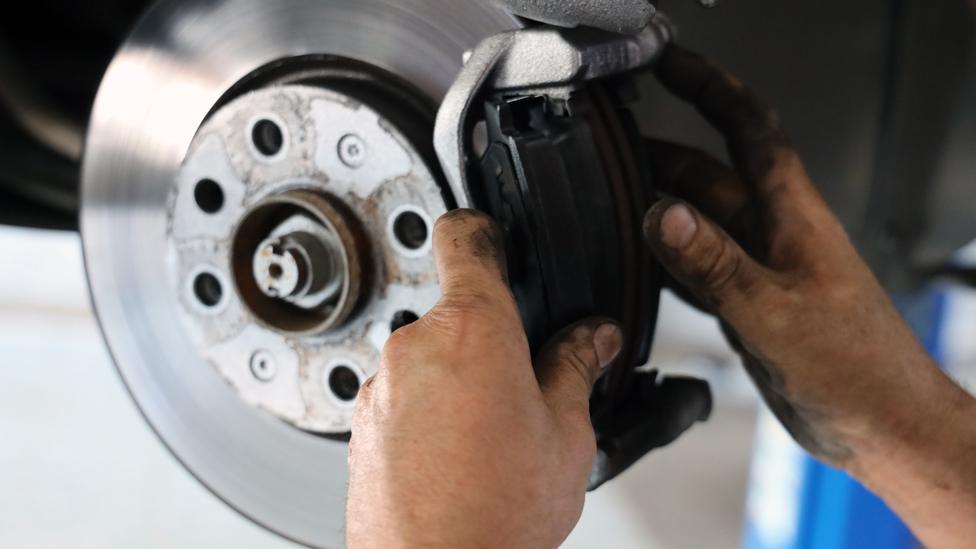
One of the world's largest brake pad manufacturers came close to shutting down production due to staff shortages caused by the so-called pingdemic.
Tom Russell of TMD Friction said 15% of UK staff had to isolate at one point after being pinged by the NHS app.
However, Mr Russell is one of many business bosses relieved with the changes to self-isolation rules.
The new rules mean fully-vaccinated people do not have to isolate if they come into contact with a positive case.
Mr Russell said the changes, which apply to people in England and Northern Ireland, would have a "massive impact" on the business.
The UK operations manager for TMD Friction said out of the 15% of staff who were isolating after being pinged by the NHS app, 40% were in the firm's maintenance teams, which led to a backlog of machines needing to be repaired.
"It didn't get too far too far away from that to be honest (complete shutdown)," he told BBC Radio 4's Today programme.
"There were a couple of points particularly with the maintenance team where we had a backlog of machines that we couldn't get repaired quickly enough because we didn't have the maintenance staff."
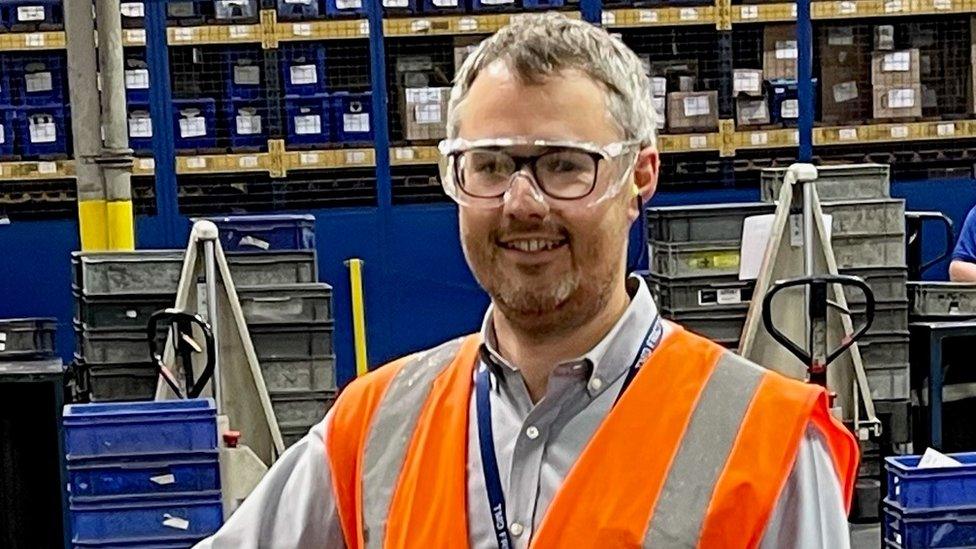
Tom Russell said it had been hard to keep operations going because of staff shortages
Mr Russell said the so-called pingdemic "created a awful lot of stress and heartache for people that were coming to work, but equally for those at home unable to work for reasons that they couldn't particularly understand".
Staff being forced to stay at home to look after children who had been sent home from school to isolate also caused further shortages, he added.
"When you have got people going off isolating at a moment's notice it's very difficult to try and react and keep operations balance, so definitely this change will have a massive impact, positively," Mr Russell said.
Staff shortages caused by the pingdemic had dealt a further blow to businesses already struggling amid the Covid pandemic.
At its peak in July, the number of self-isolation alerts sent in England and Wales in a week was just under 700,000.
Supermarket chain Iceland said that after keeping all of its stores open during lockdown, it had to shut some last month because 1,000 staff had been "pinged" by the NHS app.
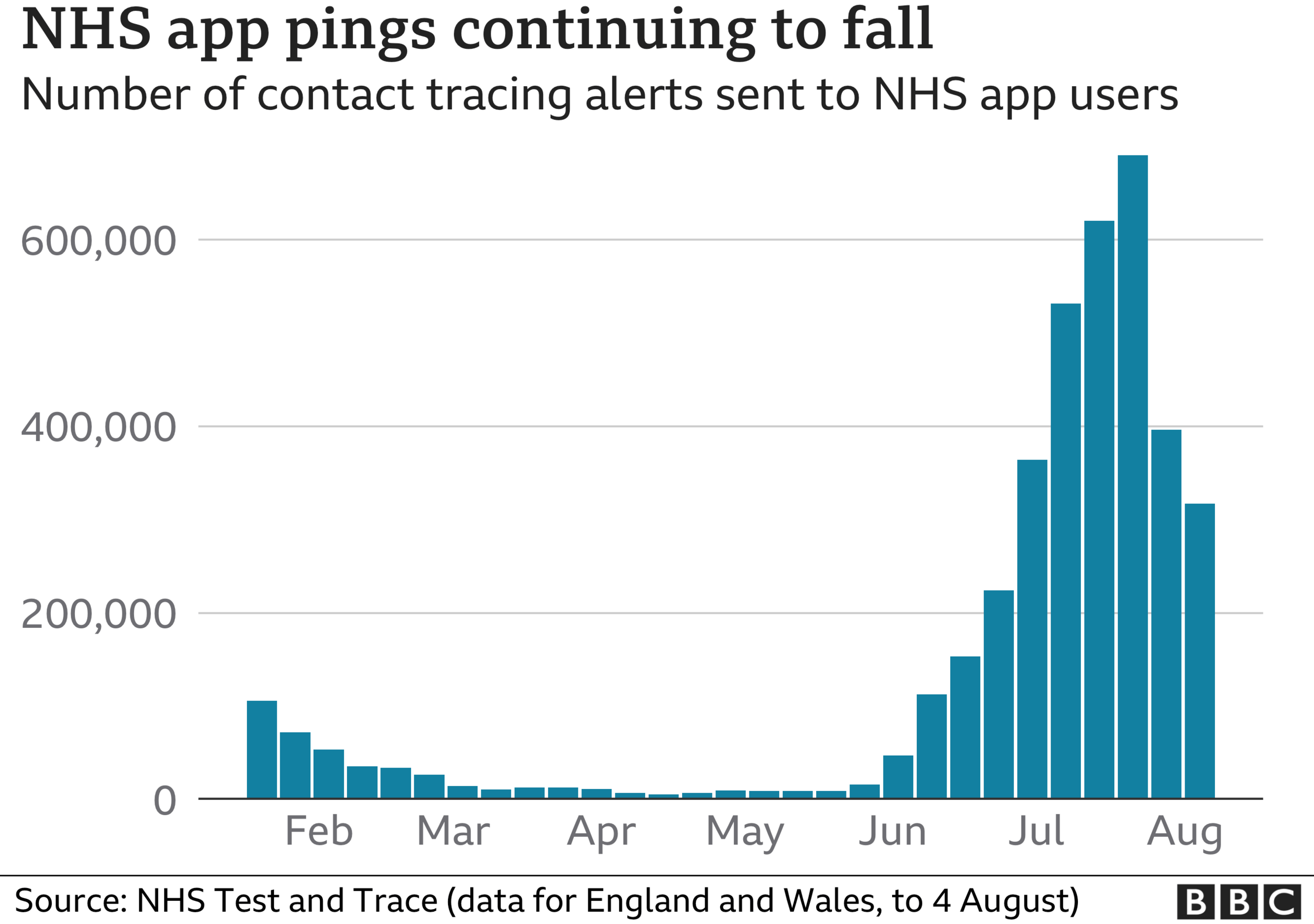
'Very sensible move'
The rule changes on isolation, which came into effect on Monday, also apply to under-18s.
The changes to self-isolation rules have already been implemented in Scotland and Wales.
Instead of having to quarantine for 10 days, people are now advised to take a PCR test, but it is not compulsory.
Kate Nicholls, chief executive of UK Hospitality, tweeted, external that the new rules, together with the change in app sensitivity, would "help reduce the impact of the pingdemic".
However, she added: "With 60% of hospitality workers under 30 we still need test to release."

Rule relaxation 'has come at a good time for us'
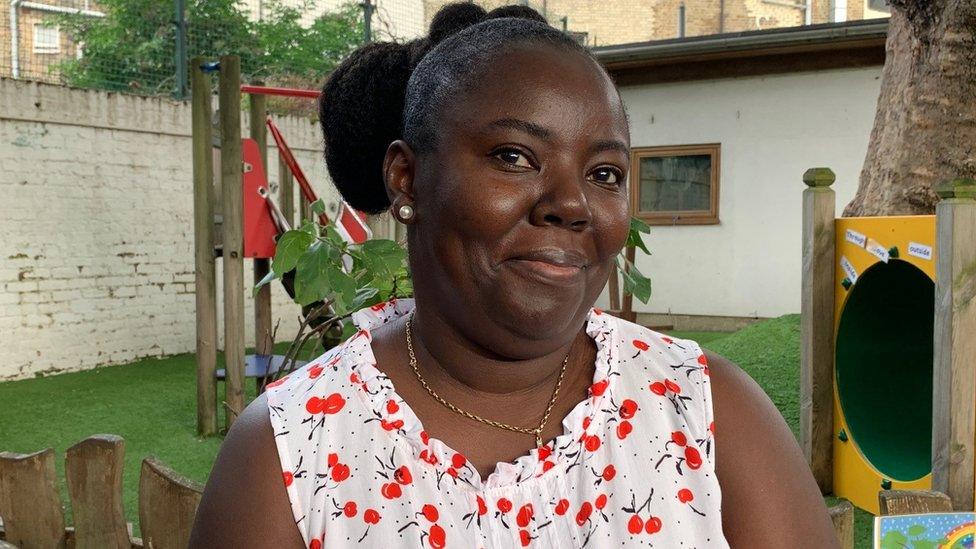
Alethea Fynn is a nursery manager at London Early Years Foundation and has had to deal with staff absences as a result of the pingdemic.
"It's been very difficult because from day to day you don't know who is going to be pinged and how many staff it's going to affect, and even what bubble it's going to affect," she said.
"Staff could come to work and at a lunch time they will come back to you and tell you they have been pinged so they would have to go home."
Ms Fynn said there had been "quite a few closures" across the network of nurseries because of staff being pinged by the app.
"The rules being relaxed has come at a good time for us. It means that a whole bubble or a nursery shouldn't be closed," she added.

'Too little too late'
Ralph Findlay, chief executive of pub chain Marstons, said the rule changes were a "very sensible move" and would make a "big difference".
"This has been quite a big challenge over recent weeks. I think it is welcome in the sector," he said.
Mr Findlay added that, on average, the company's 1,400 pubs had returned to trading at pre-pandemic levels.
Mike Cherry, the national chairman of the Federation of Small Businesses, said the rule changes would come as a "relief" to companies.
However, while Michael Kill, chief executive of the Night Time Industries Association, agreed the changes in rules were a "positive step forward", he added that they were "in many ways too little too late".
"We are lobbying the government for a more liberal system which will look at a mechanism of Test & Release, which will certainly help the balance between public health and challenging staffing shortages faced by the sector at the moment."
- Published16 August 2021
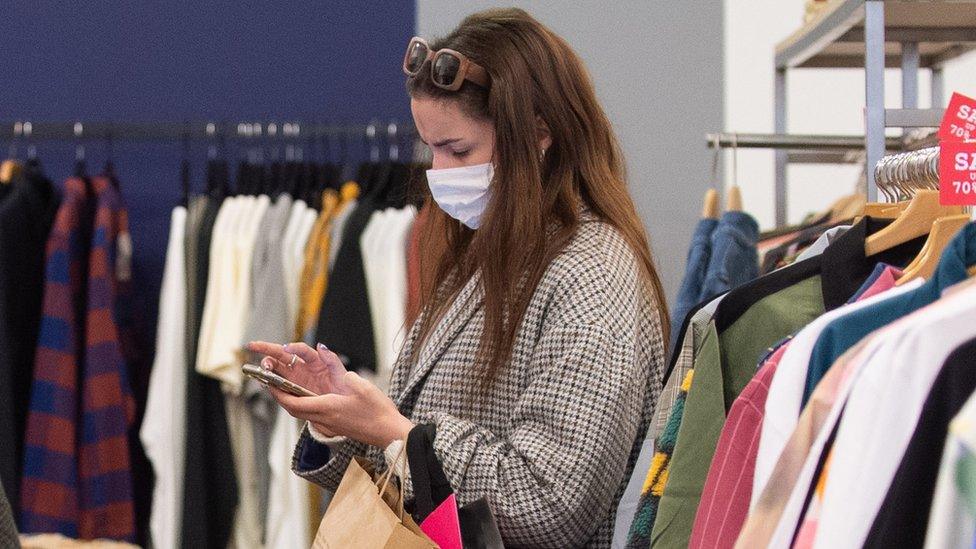
- Published20 December 2023

- Published19 July 2021
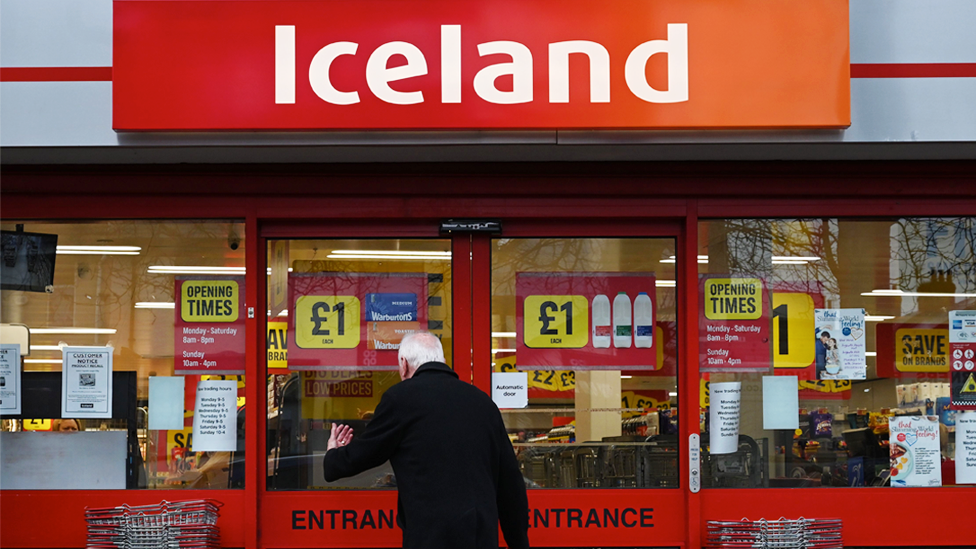
- Published20 July 2021
